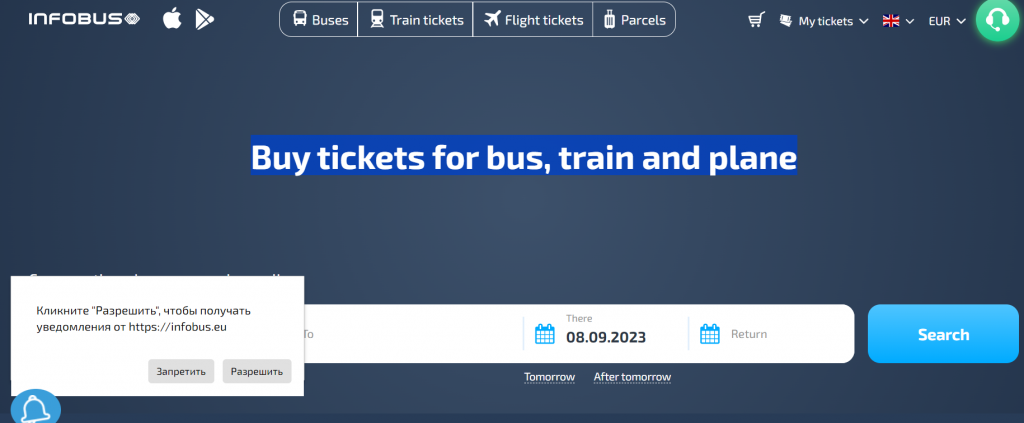
Are you tired of the long queues and frustrating wait times when buying tickets for your next trip? Well, fret no more! The future of ticket purchasing is here, and it’s about to revolutionize the way we travel. With advancements in technology, saying goodbye to those old-fashioned ticketing systems has never been easier or more exciting. So buckle up and get ready to explore how this new wave of innovation will transform bus, train, and plane travel as we know it. Get ready to embark on a journey into the future of ticket purchasing!
The Problem with Current Ticketing Systems
Current ticketing systems have long been a source of frustration for travelers. Whether you’re standing in line at the bus terminal, train station, or airport, the process can be tedious and time-consuming. The lack of efficient technology often leads to overcrowding and delays, making it difficult to plan your journey with ease.
One major issue with current ticketing systems is their reliance on physical tickets. It’s all too common to misplace or forget these paper documents, causing unnecessary stress and inconvenience. Additionally, purchasing tickets in person often means limited availability and the possibility of sold-out seats.
Another drawback is the limited accessibility of ticket sales outlets. Not everyone has easy access to a nearby booking office or kiosk, which can be especially challenging for those in rural areas or travelers who are constantly on the move.
Furthermore, traditional ticketing systems often lack transparency when it comes to pricing and available options. It can be frustrating trying to compare prices from different carriers or find deals that suit your budget.
The Benefits of New Technology
Advancements in technology have revolutionized various aspects of our lives, and the world of travel is no exception. When it comes to ticket purchasing for buses, trains, and planes, new technologies offer numerous benefits that make the entire process more efficient and convenient.
One major advantage is the convenience factor. With new technology, travelers can now easily book their tickets online from the comfort of their own homes or even on-the-go using mobile apps. This eliminates the need to stand in long queues at ticket counters or waste time searching for physical ticket outlets.
Another benefit is improved accessibility. Online platforms provide travelers with a wide range of options when it comes to choosing routes, departure times, and seating preferences. This allows individuals to customize their journey according to their specific needs and preferences.
Additionally, new technology often offers real-time updates and notifications regarding any changes or delays in schedules. This ensures that passengers stay informed about any unexpected disruptions so they can adjust their plans accordingly.
The Downfalls of New Technology

While there are undoubtedly many advantages to the new technology being introduced in ticket purchasing for bus, train, and plane travel, it is important to acknowledge that there are also some downsides.
One potential downfall is the issue of data security. As we increasingly rely on technology for ticketing purposes, our personal information becomes vulnerable to cyber attacks and breaches. This raises concerns about privacy and the protection of sensitive data.
Another drawback is the potential for technical glitches or system failures. While technology has improved significantly over time, it is not immune to malfunctions. Imagine being at the airport with a digital boarding pass that suddenly disappears from your phone due to a software error – this could lead to unnecessary stress and delays.
Moreover, relying solely on technology can leave certain groups of people behind. Not everyone has access to smartphones or reliable internet connections. This creates a barrier for those who may struggle with using digital platforms or simply prefer traditional methods of purchasing tickets.
How New Technology Will Change the Way We Travel
Technology is revolutionizing the way we travel, and it’s only going to continue shaping our experiences in the future. One of the most exciting developments is how new technology will change ticket purchasing for bus, train, and plane travel.
With advancements in mobile apps and online platforms, travelers can now easily research and compare fares across multiple providers. This transparency allows us to make more informed decisions when choosing our transportation options. No longer are we limited to a single website or physical location; instead, we have a wealth of information at our fingertips!
Additionally, new technologies like virtual reality (VR) have the potential to transform the way we plan and experience our trips. Imagine being able to virtually explore a destination before even booking your ticket! VR could provide an immersive preview of what awaits us, helping us decide on destinations that truly align with our interests.
Moreover, artificial intelligence (AI) has already started making its mark on ticketing systems. Chatbots can assist travelers by providing real-time information about delays or cancellations, suggesting alternative routes or accommodations if needed. This saves time and reduces stress during unexpected situations.
Furthermore, biometric identification has gained momentum as a secure method for authentication at airports and other transportation hubs. Facial recognition technology eliminates the need for paper tickets altogether – all you’ll need is your face! This streamlined process not only enhances security but also speeds up boarding times significantly.
Our Recommendation: Infobus

In this fast-paced world, technology continues to revolutionize every aspect of our lives, including travel. The future of ticket purchasing is set to transform the way we book bus, train, and plane tickets. While there are benefits and downfalls associated with new technologies, one platform stands out as a game-changer in the industry: Infobus.
With current ticketing systems facing issues such as long queues, limited availability of seats, and complex booking processes, it’s clear that change is needed. New technology offers numerous advantages that will greatly enhance the ticket purchasing experience for travelers.
One major benefit is convenience. With digital platforms like Infobus, users can easily search for available routes and schedules from the comfort of their own homes. Gone are the days of rushing to physical ticket counters or waiting on hold during peak hours.
Another advantage is accessibility. New technology allows travelers to access information about various modes of transportation all in one place. Whether you’re looking for bus tickets or planning a multi-modal journey combining different forms of transportations like trains and planes – platforms like Infobus provide comprehensive options in seconds.
Additionally, new technology brings transparency to pricing and seat availability. Users can compare prices across different providers instantly instead of relying on word-of-mouth recommendations or outdated brochures. This helps travelers make informed decisions without wasting time or money.
However, it’s important to acknowledge that there may be downsides associated with new technological advancements in ticket purchasing. Some individuals may find it challenging to adapt to these changes if they are not familiar with using digital platforms or lack internet access altogether.





